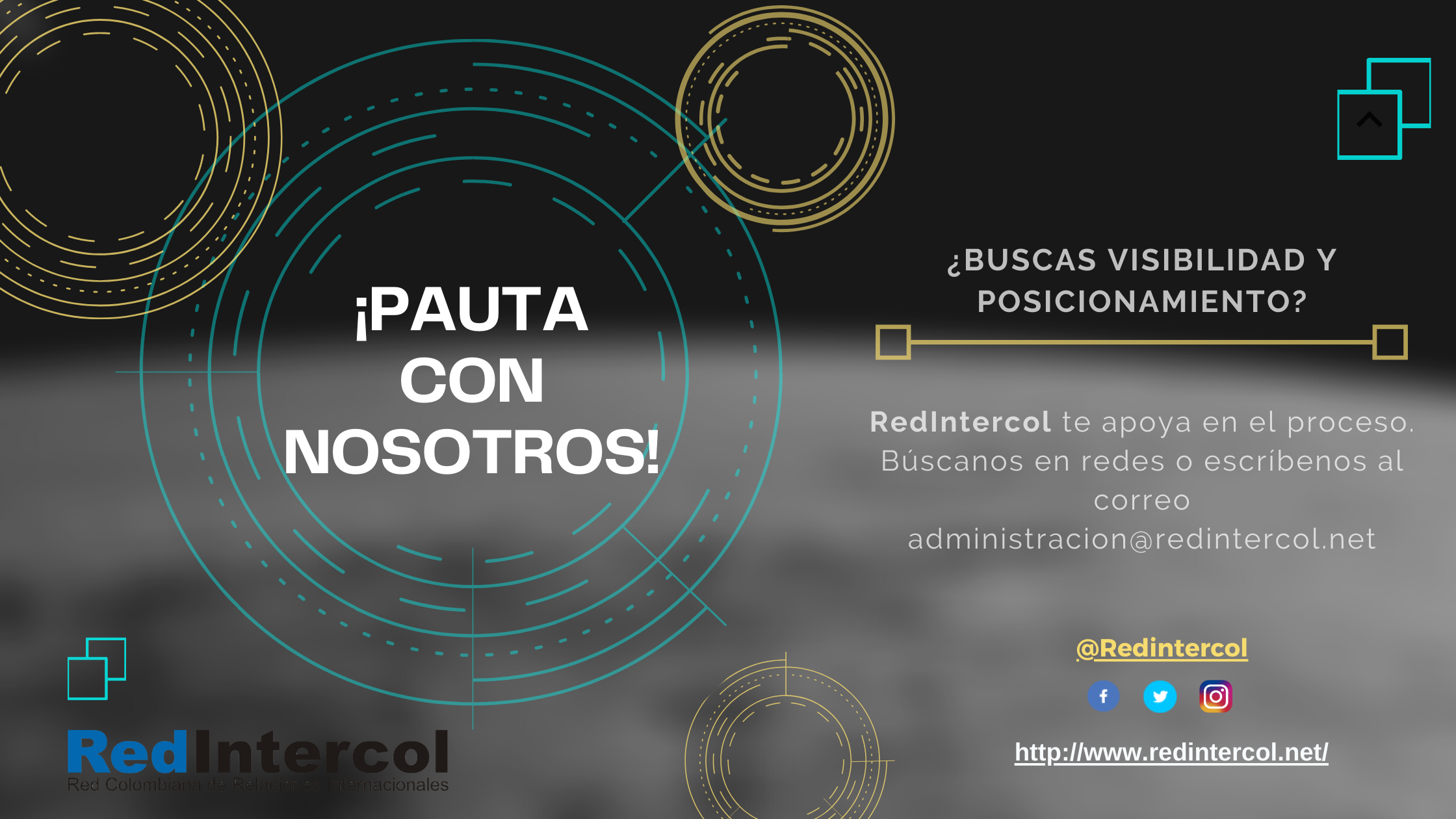Newsletter Mayo 2023 Destacado
- Escrito por admin
Newsletter Mayo 2023
Editorial
Por: Arlene B. Tickner - Presidenta Honoraria RedIntercol
Congreso RedIntercol - ISA LAC
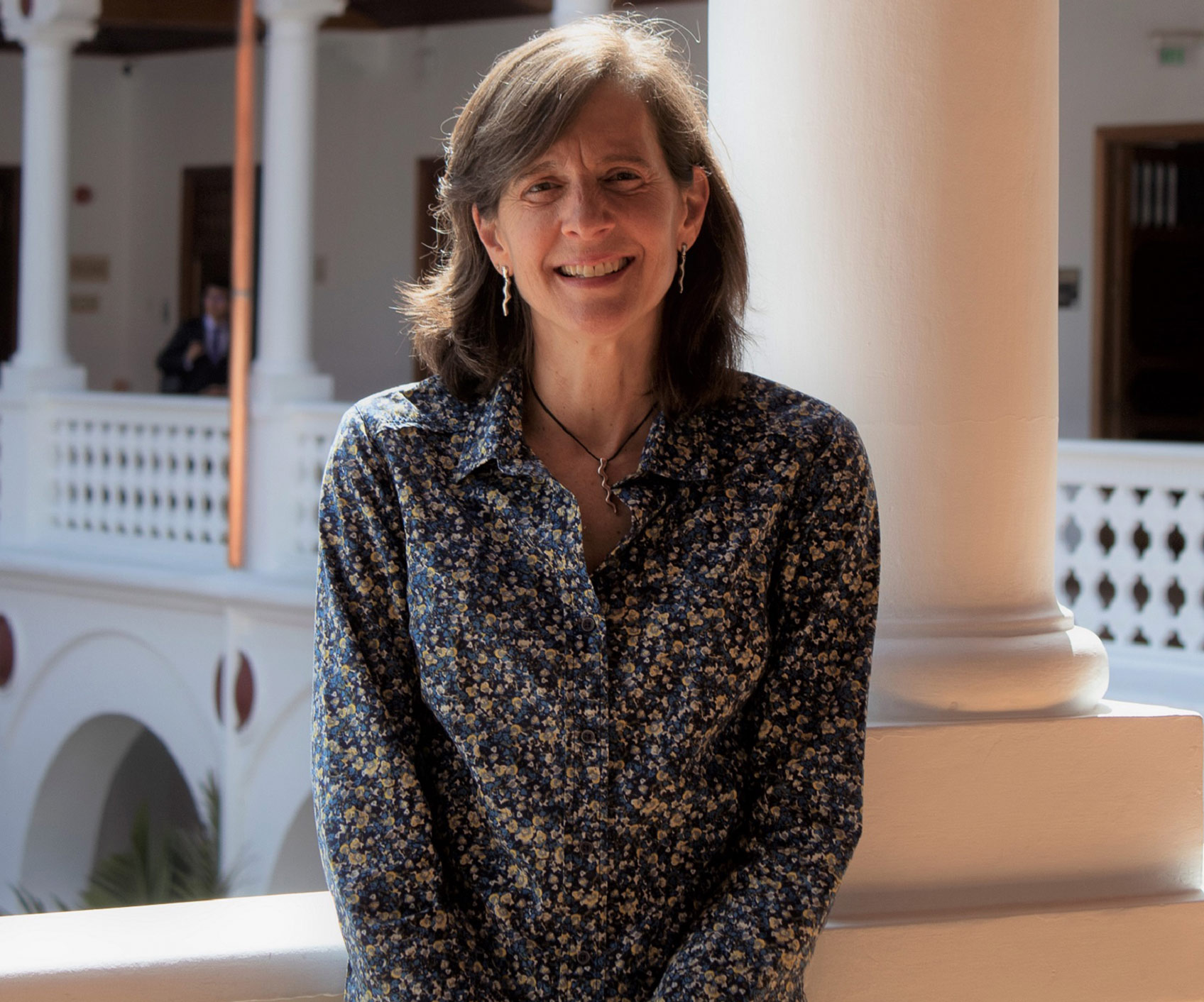
La comunidad está en el centro de lo que nos define y nos moldea como seres humanos. Vivir en comunidades en las que el respeto mutuo, la convivencia pacífica, el cuidado y la tolerancia de las diferencias son características centrales permite cultivar contextos sociales saludables en los que las personas gozan de seguridad y confianza y puedan alcanzar su máximo potencial. La academia no es excepción. Como muchos otros mundos sociales, no se caracteriza siempre por los rasgos señalados sino por los egos, la competencia, la rivalidad y la hostilidad. Así, construir comunidad académica es algo decisivo garantizar espacios y costumbres de relacionamiento en los que todas y todos, profesores, investigadores y estudiantes, pueden aprender, crecer, colaborar e intercambiar de manera óptima.
La Red Colombiana de Relaciones Internacionales, Redintercol constituye fundamentalmente un proyecto de construcción de comunidad académica en el campo de las Relaciones Internacionales en Colombia. A lo largo de su existencia, que abarca más de 14 años no solo ha realizado seis congresos bianuales y números incontables de otros eventos, sino que ha promovido un proceso paulatino de internacionalización, consistente en la creación de vínculos con otras asociaciones profesionales en la disciplina, en especial en América Latina pero también más allá de ella, como ocurre en el caso de sus colaboraciones con el World International Studies Committee (WISC). No dudo en pensar que esto ha sido decisivo para robustecer a nuestra comunidad y sus miembros al ponernos en conversación e interacción con contrapartes de fuera de Colombia.
Con ocasión de próximo congreso de la Redintercol, se abre la oportunidad de ser sede de la primera conferencia de la región de América Latina y el Caribe del International Studies Association (ISA-LAC), la principal asociación profesional en Relaciones Internacionales del mundo. Recibir a ISA-LAC en Bogotá constituye un hito innegable de la maduración y el posicionamiento externo de Redintercol y de la construcción de comunidad académica más allá de nuestras fronteras con quienes trabajan en y sobre América Latina y el Caribe. Siendo ISA una asociación que tiene más de 7,000 miembros, esta interlocución nos abre, literalmente al “mundo de las RI”.
ISA-LAC agrupa a todas y todos los miembros del International Studies Association que residen en América Latina y el Caribe. Sin embargo, este evento inaugural busca atraer a asistentes de fuera de la región también, aprovechando así del buen momento que goza Colombia a nivel global y de la curiosidad intelectual y turística de conocer a nuestro país más a fondo. Se trata de un espacio excepcional para construir y consolidar redes, presentar nuestros trabajos a públicos académicos no colombianos y darnos a conocer. No menos significativo, en momentos en los que la financiación de nuestras instituciones se torna escasa y la capacidad de nuestros bolsillos limitada, la posibilidad de asistir en Bogotá a un congreso internacional que lleva no solo el sello de la Redintercol y la Universidad Javeriana sino también, ISA-LAC es algo que no se puede desaprovechar.
Congreso RedIntercol - ISA LAC
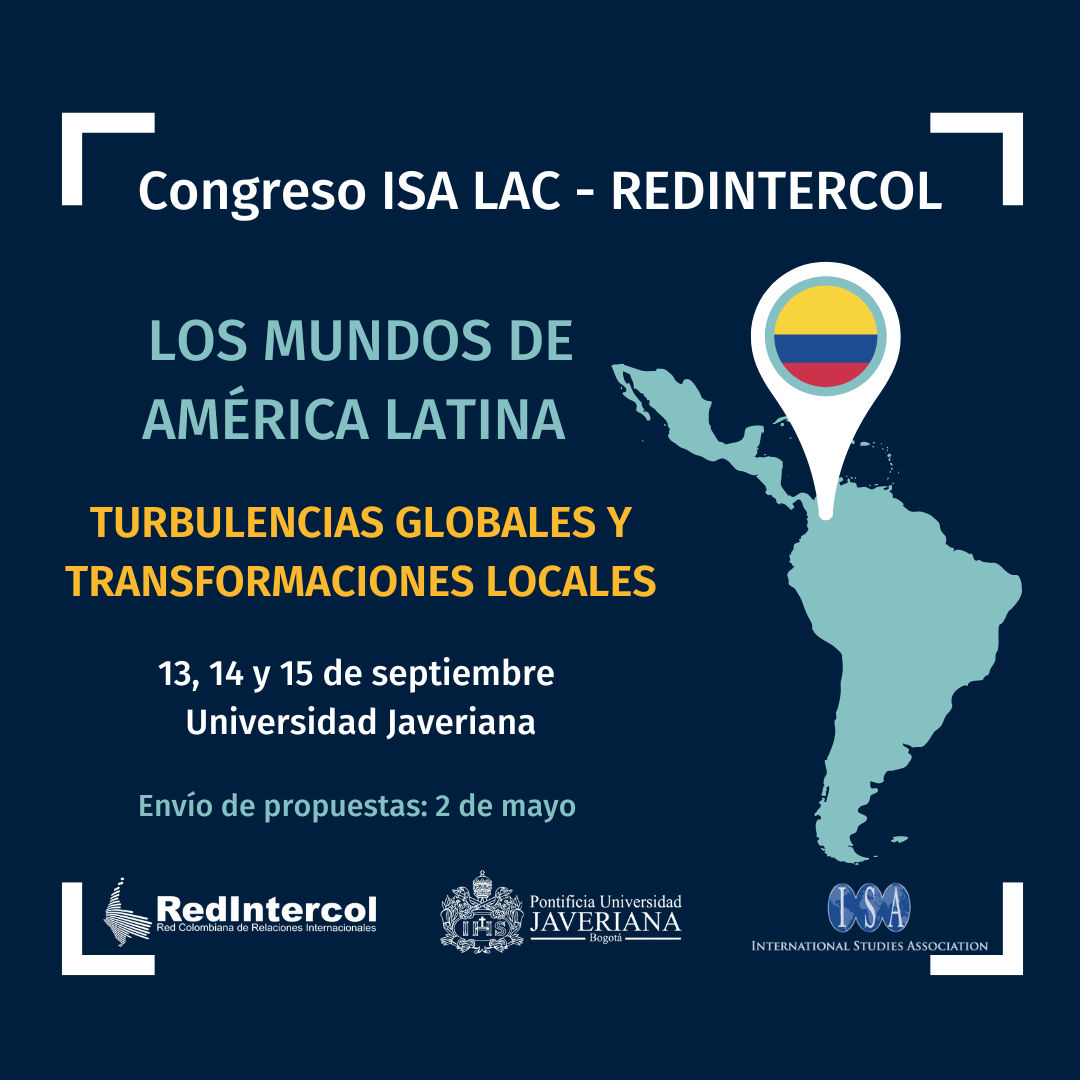
Recomendados
Artículo: The Pacific Alliance and its influence on South American regionalism
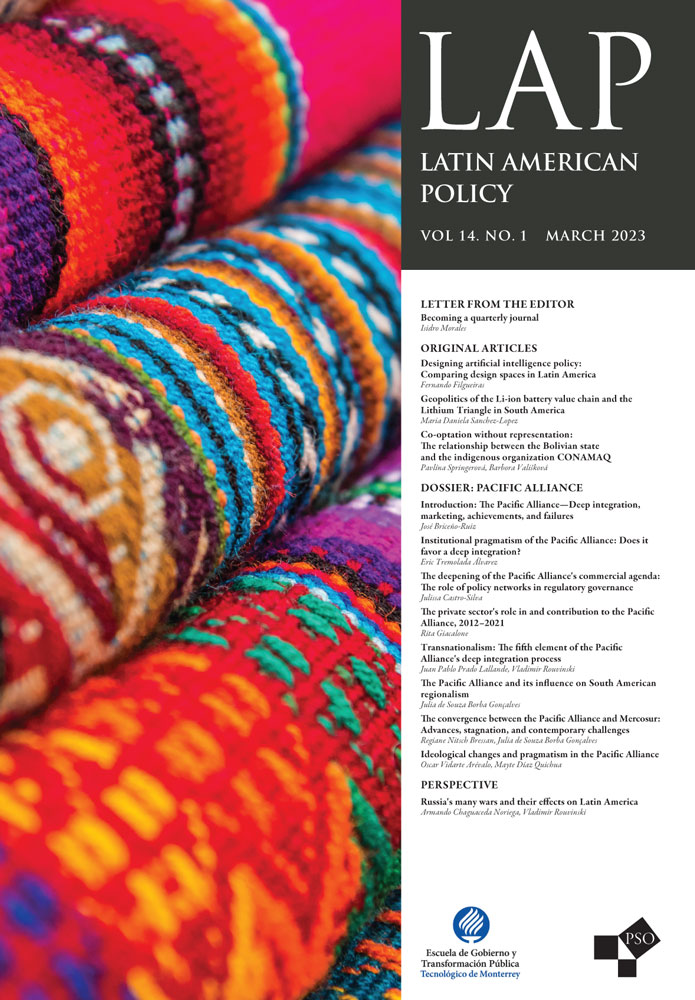
Resumen
When the Pacific Alliance was created in 2011, its proposal to reestablish open regionalism led to a debate on the fragmentation of regional integration and the Atlantic–Pacific divide. A decade later, Latin American regionalism is under stress, but the Pacific Alliance is not. Moreover, regionalism in South America displays features that are observed in the Pacific Alliance. From a constructivist framework, this article analyzes how the ideas from the Pacific Alliance shaped the early development of Prosur, highlighting the role of Chile, Colombia, and Peru in influencing South American regionalism. This article aims to contribute to debates on the future of Latin American regionalism by stressing how the Pacific Alliance influences regionalism, dispelling the idea that it is a mere trade bloc, and showing how it consolidates the Bogotá–Lima-Santiago axis in South American regionalism. It sheds light on the relevance of this regional bloc in political terms and on the agency capacity (achievements and limits) of Colombia, Peru, and Chile in setting a regional agenda.
Artículo: The convergence between the Pacific Alliance and Mercosur: Advances, stagnation, and contemporary challenges
Autores: Regiane Nitsch Bressan y Julia de Souza Borba
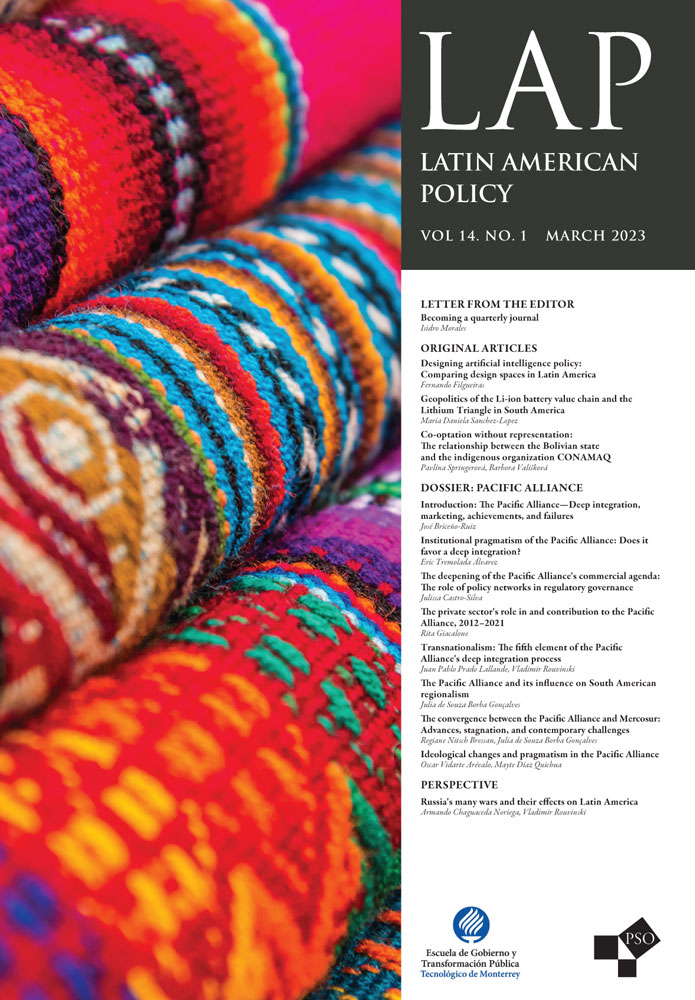
Resumen
This article investigates the relational dynamics between the Pacific Alliance and Mercosur from 2011 to 2022. It seeks to understand the moments of advancement and retraction of both regional processes by discussing the current situation and the prospects for strengthening the convergence between them. The study is based on data analysis—documents, reports, news, and institutional archives—that highlight how the negotiations between Mercosur and the Pacific Alliance were conducted. A literature review complements the analysis by reinforcing the concepts applied in this study to support the research hypothesis—that initial competition between the Pacific Alliance and Mercosur was overcome by efforts to manage the differences between them, which culminated in an ongoing dialog between the blocs. Still, the endogenous problems of Latin American integration processes and ideological differences between the national governments have resulted in challenges for the advancement of a convergence and the establishment of common trade policies. To overcome such differences, it is essential to reach cooperation agreements that transcend the elimination of tariffs between the two regional projects. The first steps toward restoring the convergence agenda require political willingness to overcome ideological differences, as well as clear interest and engagement from the economic elites.
Invitaciones
Revive el conversatorio ‘Política Exterior y Política Comercial: Una simbiosis necesaria para Colombia’
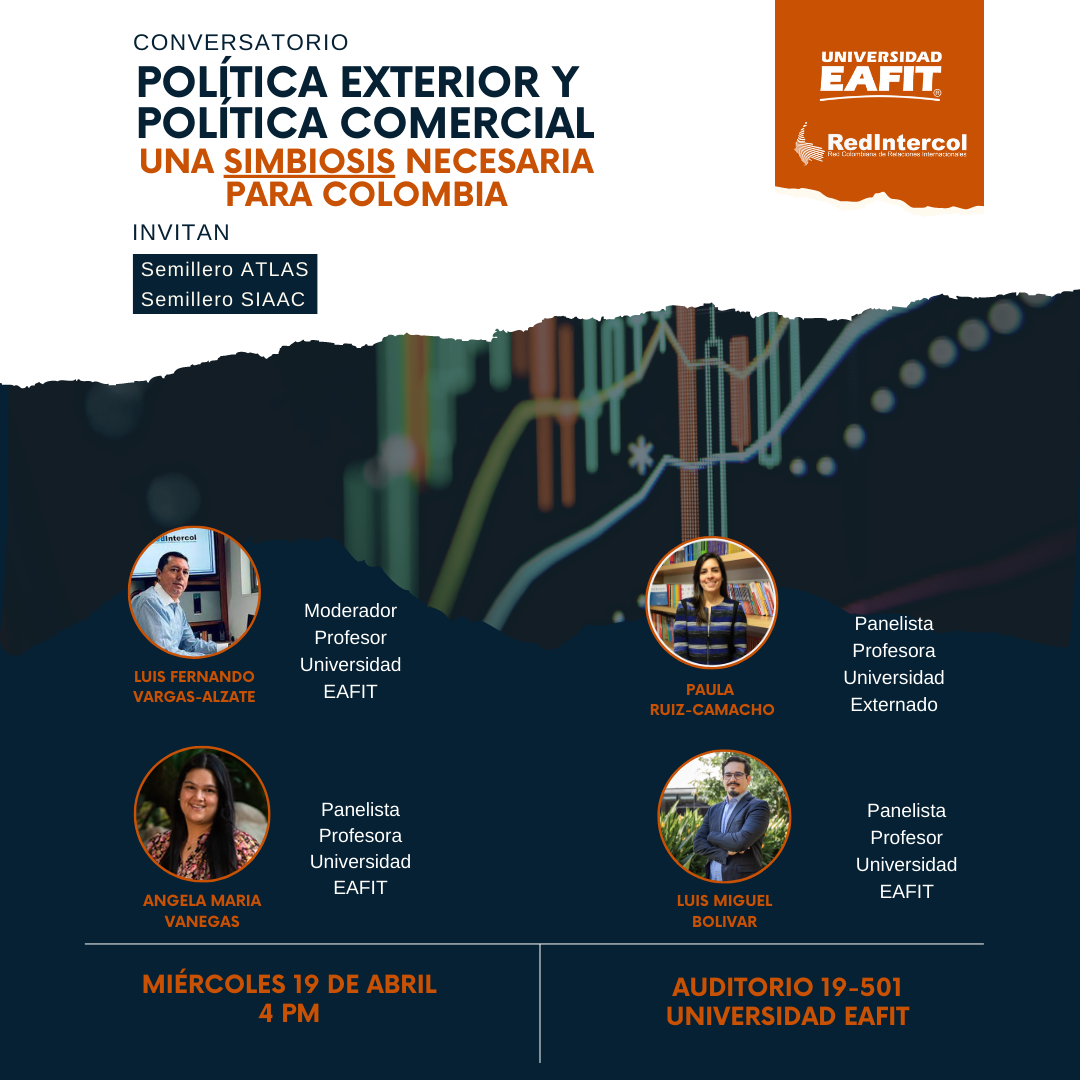
Sesión Informativa Virtual: Ingreso a la Carrera Diplomática y Consular 2025
Fecha: Miércoles 3 de mayo (5:00 - 6:00p.m)
Lugar: ZOOM
Inscripción:
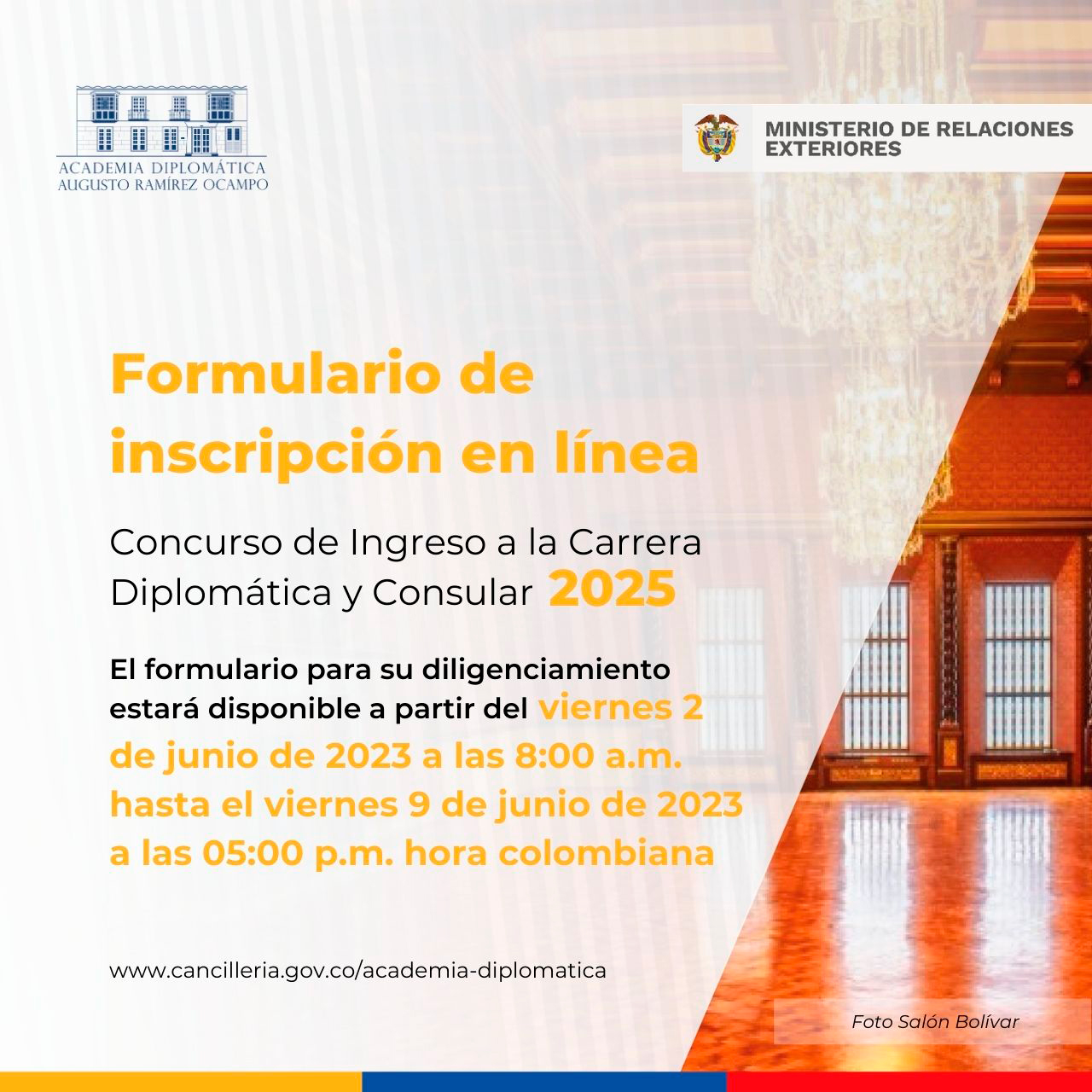
Call for Papers: “Relaciones internacionales: de América Latina para el mundo”
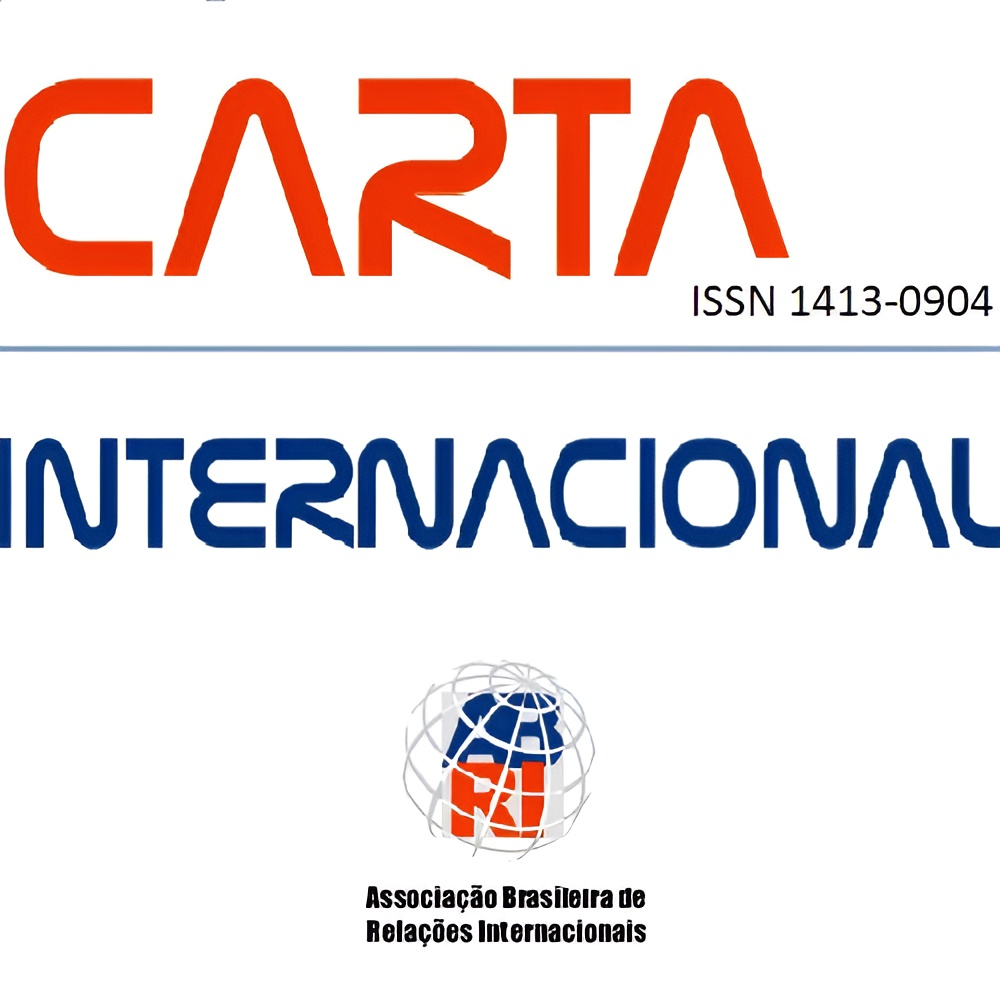
Paute con nosotros
